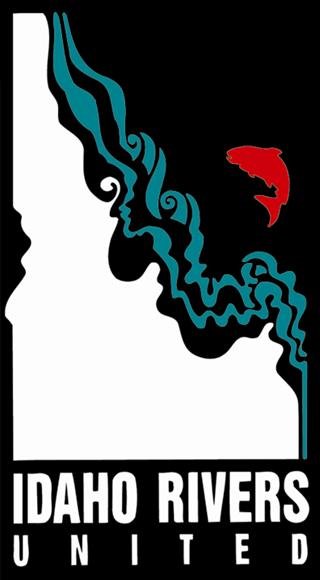IRU pushes back on 37 South Fork Payette mining claims
New placer mining on the South Fork of the Payette River faced strong opposition from conservation interests during an administrative hearing June 6.
The river in and around Lowman is prized by boaters, hikers, campers and others, the conservationists said, and mining is one of the most transformative and destructive practices the U.S. Forest Service could administer there.
“It’s accessible to the Treasure Valley and has a road alongside it,” said IRU Executive Director Kevin Lewis, who testified on behalf of the South Fork’s inherent Wild and Scenic qualities. “But once you get down along the river you don’t realize it’s there. It actually makes for a very solitary experience.”
Idaho Conservation League Public Lands Director John Robison and Cascade Raft and Kayak Owner Kenneth Long also testified on behalf of a clean, free-flowing and mine-free river.
“I do not accept that mining is the highest and best use on a Wild and Scenic river, or an eligible Wild and Scenic river,” Lewis said.
On Aug. 28, a company from Starr, Idaho and three other individuals staked 37 placer mining claims along the South Fork of the Payette upstream of Lowman and north of Five Mile Creek. If developed the claims could dramatically rearrange the area from Lowman to Sourdough Lodge, including lands adjacent and close to the popular Kirkham Hot Springs.
The Boise National Forest is contesting the claims and asked IRU and others to testify on behalf of the river. Last December IRU filed comments with the forest stating that any mining on the South Fork would directly jeopardize critical bull trout habitat, compromise Wild and Scenic outstandingly remarkable values, and disturb recreation on and off the incredibly popular section of river.
The South fork of the Payette is renowned across Idaho and the Pacific Northwest as a premier paddling destination. The roughly 11-mile section in question boasts some of the river’s finest whitewater, including several class III and IV rapids. The river itself, Kirkham Hot Springs, two federal campgrounds, several small businesses and a number of private homes would be directly impacted if the cited mining claims were developed.
“People would be less likely to want to go rafting or kayaking in this stretch if there are track-hos digging on the banks,” Long said. “Rafting through a mining zone does not have the same experience as the nature that we have now.”
The claims are located within the impact area of a previously identified hydropower site, and that creates a legal toehold. The Mining Claims Rights Restoration Act of 1955 establishes the ability for the federal government to contest placer mining in areas historically set aside for hydropower development. The law essentially prioritizes hydropower development over mineral extraction.
Using this law, Forest Service attorneys filed to contest the claims in federal court. Forest Service Attorney Alan Campbell said he didn’t expect a ruling in the case until late this fall, or potentially in early 2019.
Banner photo of the South Fork Payette by Greg Stahl

